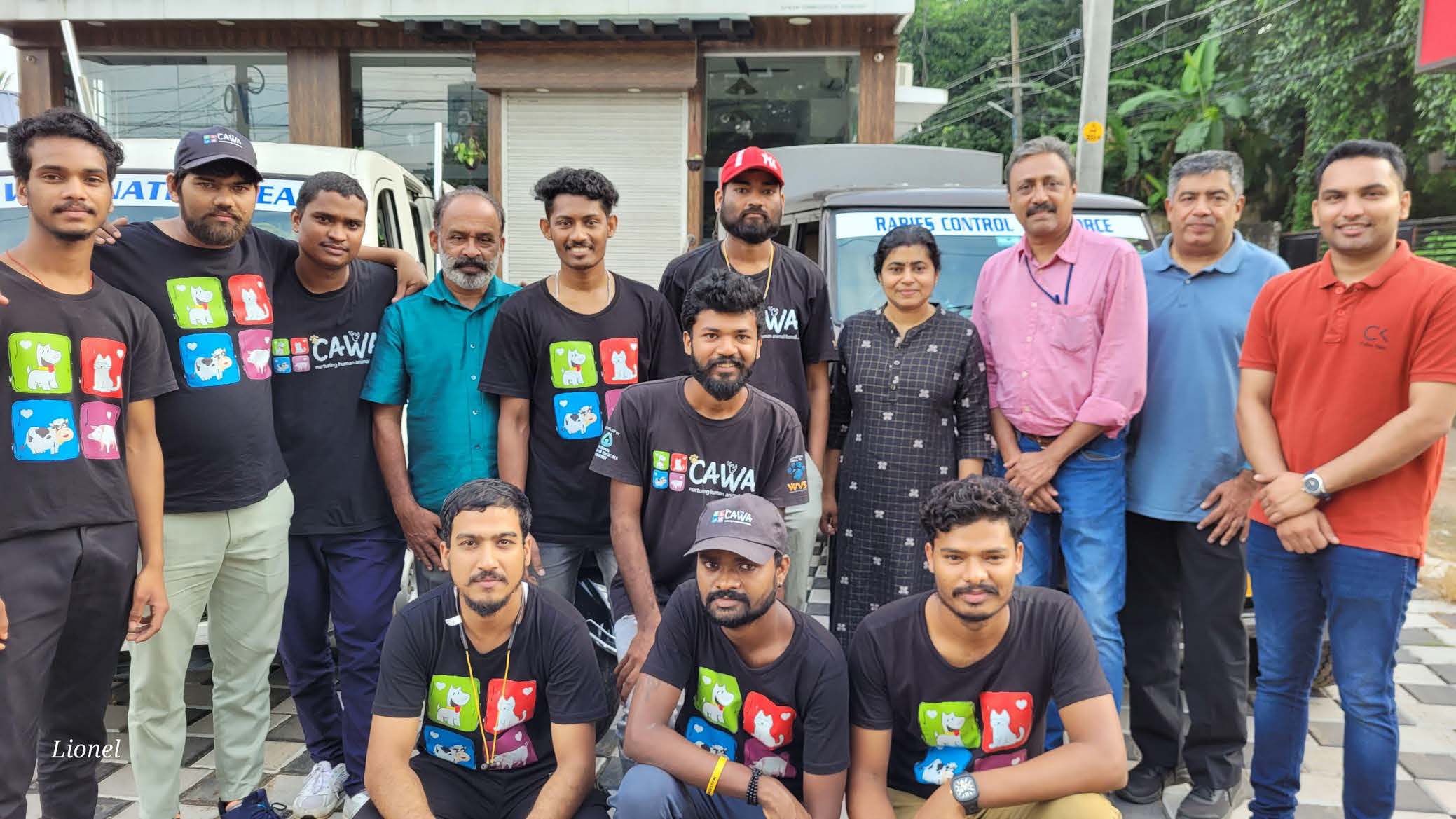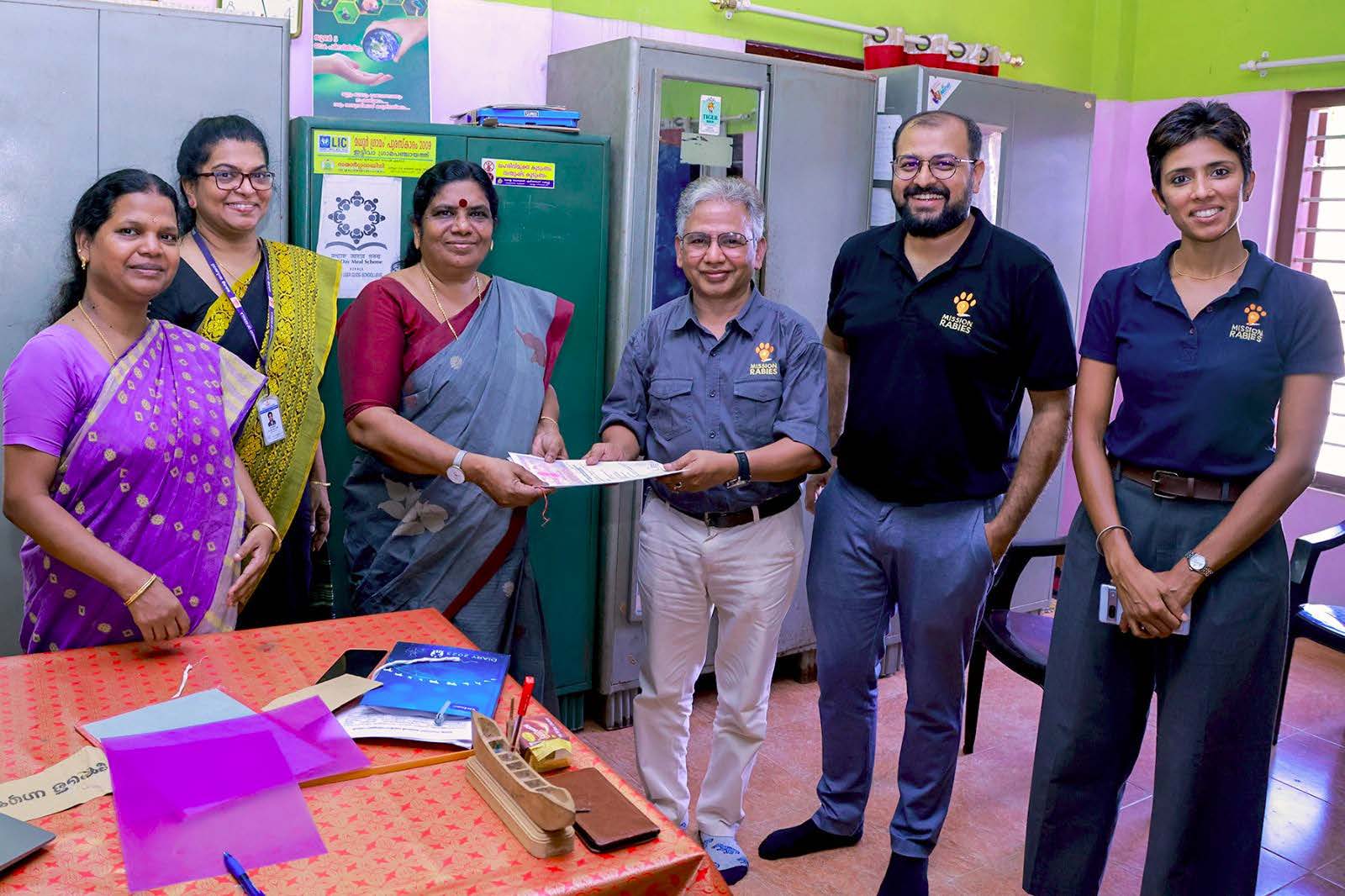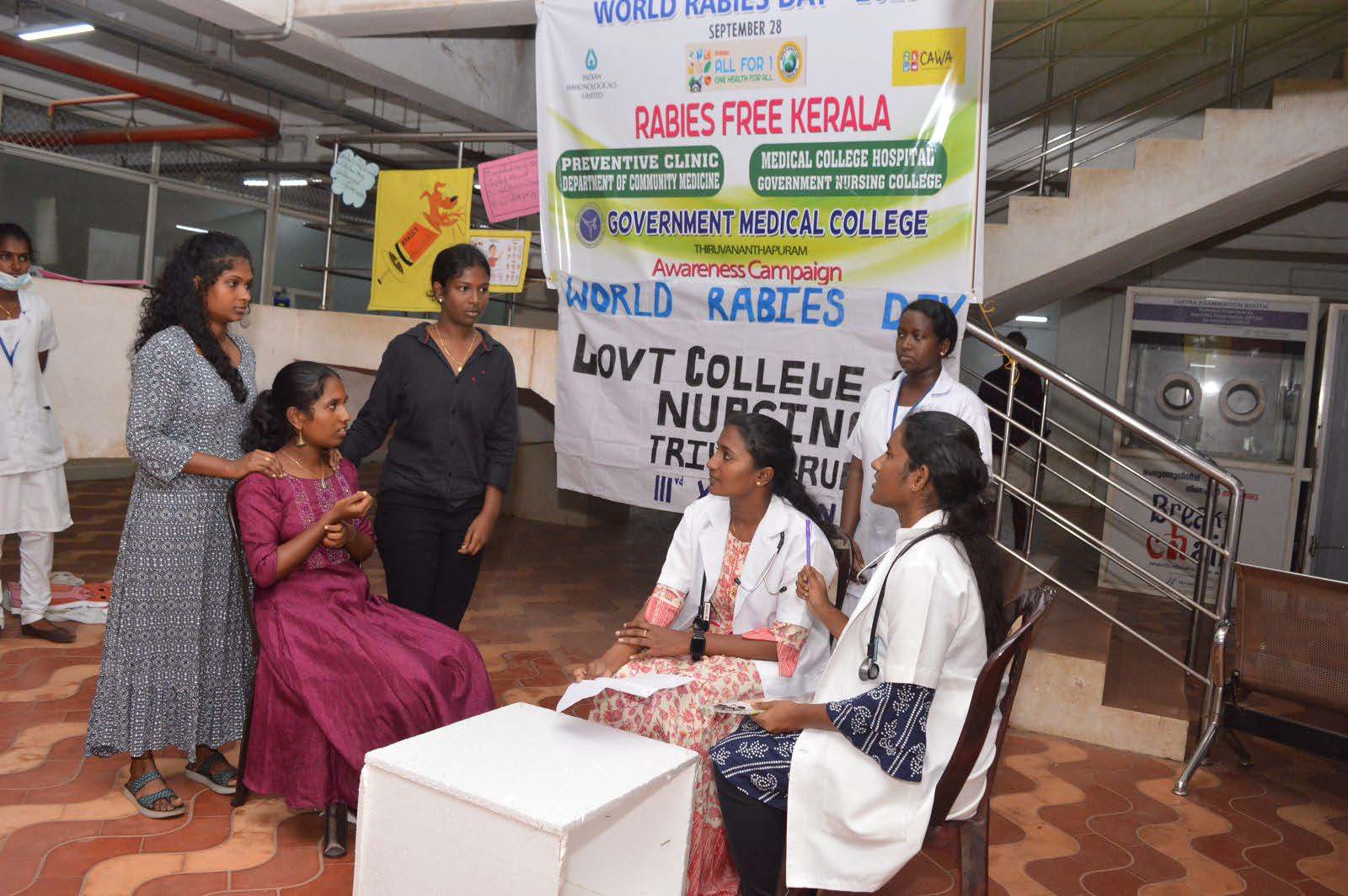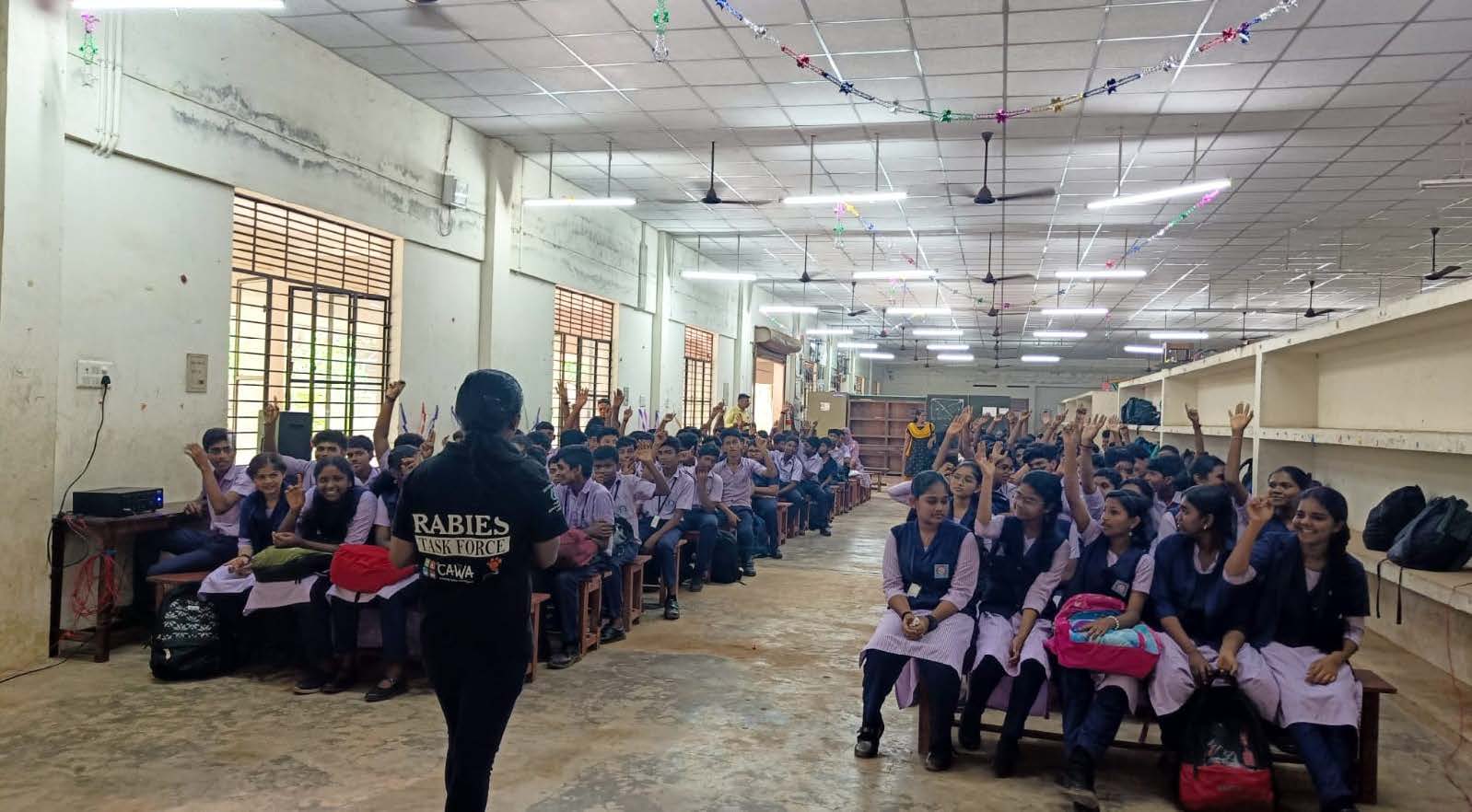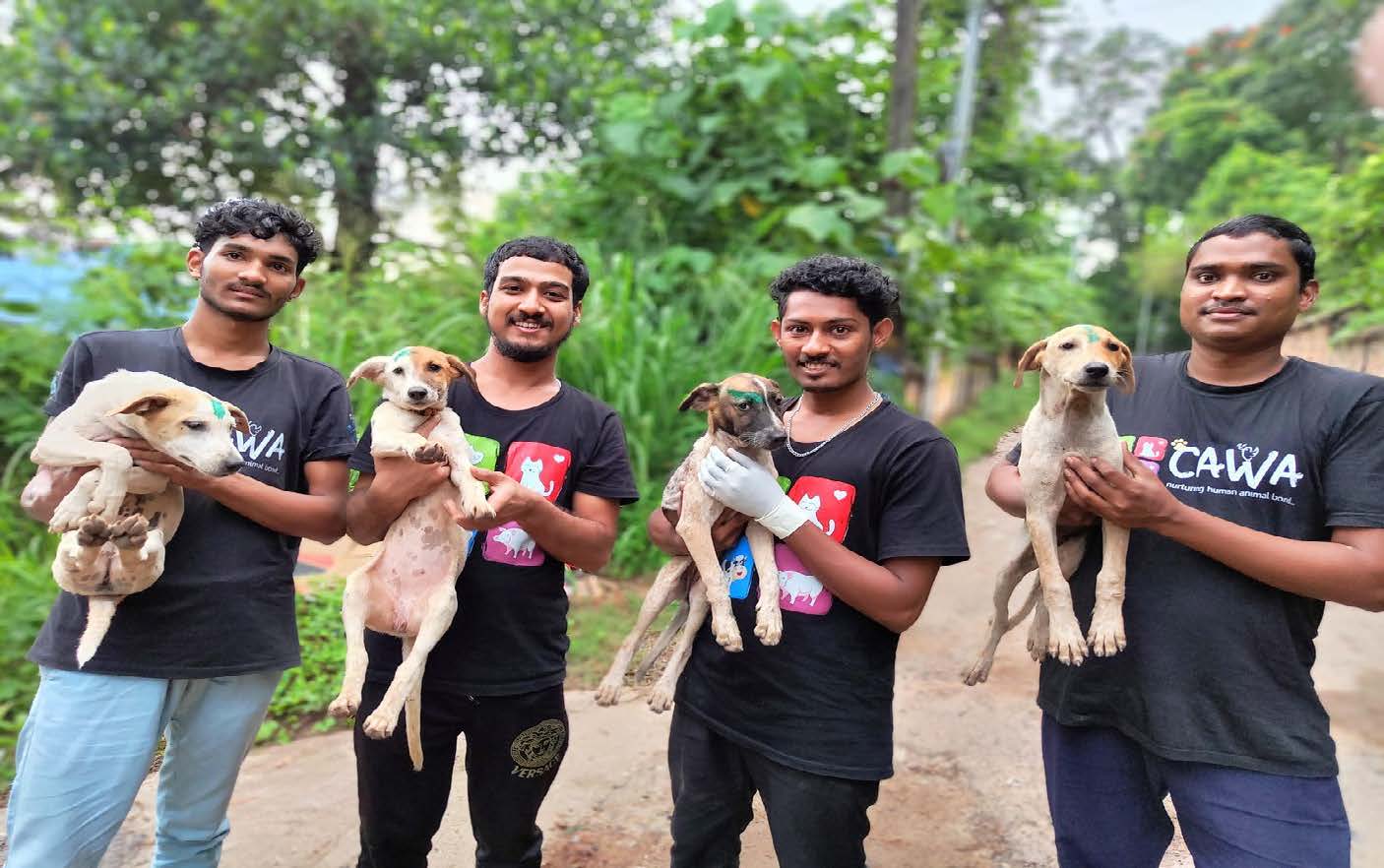
Rabies remains a challenge in Kerala, India and is considered a major public health issue. In 2022, there were a series of human deaths due to dog-mediated rabies, which was a wake-up call for the state. In line with a National Action Plan for eliminating dog-mediated rabies, steps were begun for reaching the goal of “Zero by 2030”, a call from the international United Against Rabies Forum to reach zero deaths from dog-mediated rabies by 2030.
Understanding that rabies is 100% preventable and yet 100% fatal, a multifaceted approach of public awareness, vaccination programs, and community engagement was developed. The state government of Kerala’s Department of Animal Husbandry led efforts in collaboration with the Local Self Government Department.
Mass Dog Vaccination
As a first step, September 2022 was declared the start of a month-long mass dog vaccination campaign in Kerala, followed by annual anti-rabies vaccination rounds. The plan was that continuous vaccination over 7 years would reduce state-wide rabies incidence. The 20th Livestock Census (2019) estimated the number of owned dogs in Kerala to be 836,275, with stray dogs numbering 289,986. The mass dog vaccination campaign’s goal was to cover at least 70% of the total dog population to achieve herd immunity.
The action marked the first time that stray dogs were vaccinated in Kerala through a campaign. Wide publicity promoted vaccination drives state-wide. Decentralisation of local governance meant that vaccination for stray dogs fell under the mandate of the Local Self Government Department. The Department of Animal Husbandry collaborated in the venture by sharing manpower, vaccines and other resources.
However, due to the lack of sufficient numbers of NGOs actively involved in animal welfare activities, desired results were not obtained in the first MDV drive.
(March 2023) NDDB team with CAWA Rabies Control Task force. (credit: Department of Animal Husbandry, Kerala, India)
Rabies-free Trivandrum Project (CSR initiative)
As part of the corporate social responsibility (CSR) initiative of Indian Immunologicals Limited, or IIL (a wholly-owned subsidiary of the National Dairy Development Board, or NDDB), the Rabies Free Trivandrum Project was started in March 2023 to support the state government in its rabies control programmes. An animal welfare organisation in India, Compassion for Animals Welfare Association (CAWA), was entrusted to implement the pilot project in the state capital of Thiruvananathapuram in the area of the Trivandrum Municipal Corporation. Stray dog vaccination and ring vaccination procedures were also done in areas where there were reports of dog bites.
(June 2023) Honorable Minister for Animal Husbandry with Director, Education, Mission Rabies / Worldwide Veterinary services and team members. (credit: Department of Animal Husbandry, Kerala, India)
MOU with Worldwide Veterinary Services
In June 2023, the Kerala Department of Animal Husbandry signed an MOU with the international NGO Worldwide Veterinary Services, for technical and technological support. Capacity building for the vaccination drives involving training of the dog catchers and vaccinators through comprehensive training programs and seminars were conducted throughout the state. Training sessions were conducted in Thiruvananthapuram, Kollam, Ernakulam and Malappuram districts.
(September 2023) Awareness campaign on World Rabies Day 2023. (credit: Department of Animal Husbandry, Kerala, India)
Patient Counselling
To address the emotional well-being of the traumatised dog bite patients, counselling was initiated by CAWA. From 2023 onwards, 11,229 patients from the General Hospital and the Government Medical College have been counselled. The main points include follow up of the post exposure vaccination to ensure completion of all the required doses and educating the patient on safe practices with dogs, including approaching unfamiliar dogs and recognizing signs of aggression.
(2023) Rabies awareness class in school. (credit: Department of Animal Husbandry, Kerala, India)
Awareness Campaigns and Education
Seminars were conducted for local authorities and the community at large about rabies and the importance of vaccination, enabling them to advocate vaccination drives within their communities. Leaflets were distributed in both the local vernacular language and English.
Community Engagement
Community members were given information on rabies prevention, encouraging them to participate actively in vaccination campaigns and to practice responsible pet ownership. The classes were supported by Mission Rabies, CAWA, and other organisations. 578 community outreach sessions have been held since 2023.
Education strategies for schoolchildren
Statistics have shown that children below the age of 15 are most vulnerable to dog bites. Hence, the General Education Department has given orders to permit organisations such as Mission Rabies to conduct rabies awareness sessions for children below the age of 15 in all schools of the state. Since 2023 onwards and to date, 938 schools in the districts of Trivandrum, Kollam, Thrissur, Palakkad, Ernakulam, Kottayam and Alappuzha have been covered. Talks have been held with the SCERT to consider the inclusion of a topic on rabies in the school syllabus to ensure that all students are aware of rabies, its control and prevention.
Laboratory Facilities
The Kerala Animal Husbandry Department has its own network of laboratories within the State which are well-equipped to confirm rabies using direct fluorescent antibody (DFA) and polymerase chain reaction (PCR) testing. These also conduct surveillance studies via sero-monitoring, to assess the immune status of dogs prior to and post-vaccination via rapid fluorescent focus inhibition test (RFFIT) and quantitative enzyme-linked immunosorbent assay (ELISA), which are used to assess the herd immunity of a population. The State Institute for Animal Diseases (SIAD) along with 4 regional disease diagnostic laboratories (RDDL) serve as the “hub and spoke” network for Kerala State. These laboratories – SIAD, Avian Disease Diagnostics Lab (ADDL), Thiruvalla and RDDL, Palakkad – are accredited by India’s National Accreditation Board for Testing and Calibration Laboratories (NABL) and have biosafety level (BSL) 2+ facilities. There are also two more rabies diagnostic laboratories which come under the Kerala Veterinary and Animal Sciences University. Thus, there are a total of 7 laboratories serving the animal health sector.
Revising the rabies vaccination campaign strategy
In January 2024, for better vaccination coverage for stray dogs, after consultation with major stakeholders, stray dog vaccination campaigns were revised to better coordinate with stray dog vaccination schedules throughout the year. The updated strategy saturates locality by locality once a year in the district, and with funding from local bodies, engages vaccinators and dog catchers throughout the year. Static institutions of the Animal Husbandry Department of Kerala would manage the process for owned dogs.
(August 2024) CAWA team members: "responsibility with compassion". (credit: Department of Animal Husbandry, Kerala, India)
Conclusion: vaccination, public education and healthcare services
Kerala state’s comprehensive approach to confronting rabies combines vaccination, public education and effective healthcare services with collaboration amongst the Animal Husbandry Department, Health Services, Local Self Government and the NGOs like Mission rabies, Worldwide Veterinary Services, and CAWA.
The state is making significant progress in reducing the incidence of rabies and protecting public health. Continuous efforts to enhance awareness, accessibility to vaccines and management of stray animals will be crucial for sustaining this progress.

